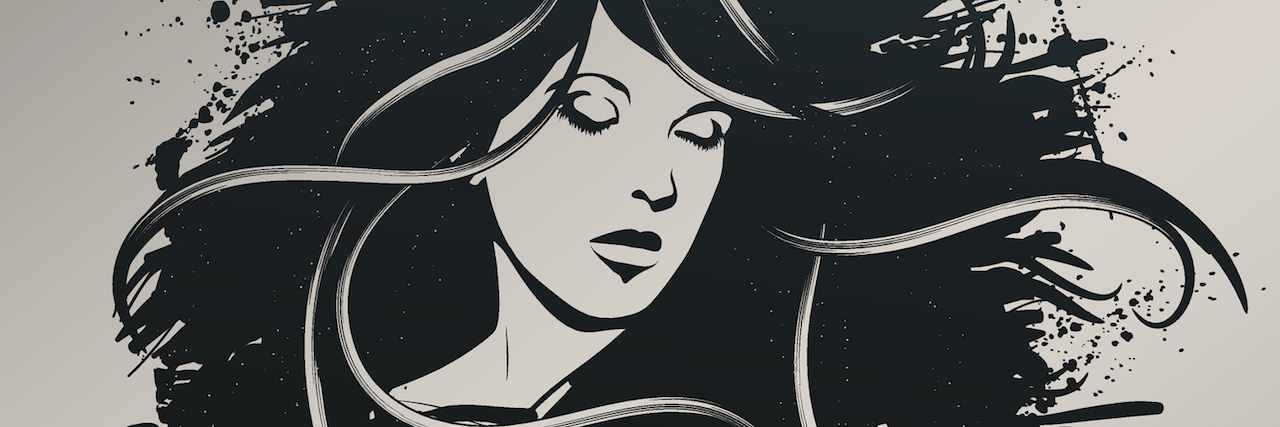Editor’s note: If you experience suicidal thoughts or have lost someone to suicide, the following post could be potentially triggering. You can contact the Crisis Text Line by texting “START” to 741-741.
I’ve searched for words already written trying to explain how I feel.
I’ve spent hours typing in different sentences describing what it feels like to survive a suicide attempt in the Google search engine.
It seems a lot of people have assumptions about how to prevent suicide, why we attempt and what it feels like surviving in life after. Countless blogs trying to explain something that can not be explained.
The day I attempted suicide, I was consciously aware of the choice I was making. Despite one of many popular statements that suicide is the easy way out, I want to tell you just how wrong that statement is.
There’s nothing easy about sobbing as you write a suicide note two weeks before your actual attempt; then days later throwing the letter away as if you never wrote it.
There’s nothing easy about reaching out in ways that others don’t know is actually your way of saying goodbye for closure.
There’s nothing easy about deep cleaning every inch of your apartment to distract yourself from your suicidal thoughts, only to starting thinking about how you’re doing everyone a favor by organizing and making your finding a little less of a burden because of the cleanliness.
There’s nothing easy about praying to God as you beg for a divine intervention, someone to text you or call you to prevent you from ending your life because you feel so alone.
There’s nothing easy about saying, “Times up,” as every negative belief about yourself is fulfilled when that divine intervention never comes.
There’s nothing easy about pacing the floors trying to get the actual “courage” to follow through with the thoughts racing through your mind to end your life.
There’s nothing easy about the switch flipping to autopilot as you go numb.
There’s nothing easy about the thought that comes after, “What have I just done?” Only to realize there is no turning back and finding peace with knowing the pain will soon be over, forever, or so you thought.
There’s nothing easy about walking to your perfectly made bed, crawling under the covers, and folding them over you as you breathe a few final breathes before drifting off.
There’s nothing easy about the flashes of standing and then feeling as if someone is tazing you as you seize.
There’s nothing easy about flashes of falling into the shower or army crawling on the floor in one spot because you can’t walk.
There’s nothing easy about hallucinating that you’re at a wedding, there’s a party on your small apartment balcony, that you’re with your estranged mother, or that a coworker has found you.
There’s nothing easy about spotty memories of the first few days in the hospital.
There’s nothing easy about sobbing as you tell a nurse how profusely sorry you are that she has to waste her time taking care of you, someone who wanted so badly to die, while she is also taking care of someone who so badly wants to live; that same nurse held my hand and distracted me trying to get me to say supercalifragilisticexpialidocious without laughing.
There’s nothing easy about the judgment and assumptions that came from some nurses and doctors as you listen to them speak about you at the nurses’ station outside your room.
There’s nothing easy about spending seven days waiting for the damage to be reversed before spending eight days in an inpatient psychiatric hospital.
There’s nothing easy about spending most of those days alone with no one talking to you because they’re terrified of what you’ve done.
There’s nothing easy about the flashbacks and the obsessions that you have of living that night over and over, day after day, night after night, trying to force yourself to recall every unconscious memory that you know must be somewhere in your brain.
There’s nothing easy about the physical sensation of wanting to throw up in your throat every time you think about having to ingest any type of medication.
There’s nothing easy about being angry at the world that you survived.
There’s nothing easy about the guilt and the shame that haunt you in life after.
There’s nothing easy about the recovery months to follow.
The truth is that there’s nothing easy about surviving a suicide attempt. Not for the survivor of the attempt, not for the family member, not for the friends and not for the support system of the loved one who believed they’d all be OK without her.
How do I know that suicide isn’t the easy way out? Because this is my story.
I’m finding myself here in life after my attempt. I’m finally starting to allow myself to be OK with the complex feelings of wanting to live and to see what my future holds, even though at one point I didn’t. My hope is that you’ll hold on to whatever feeling(s) you may have or let go of whatever feeling(s) you may not have about your suicide attempt; work through the aftermath of what you thought you wanted, only to find every unknown gift about yourself you have to offer this world, here in the present and in the future.
If you or someone you know needs help, visit our suicide prevention resources page.
If you need support right now, call the National Suicide Prevention Lifeline at 1-800-273-8255, the Trevor Project at 1-866-488-7386 or reach the Crisis Text Line by texting “START” to 741-741.
We want to hear your story. Become a Mighty contributor here.
Getty image via Transfuchsian

